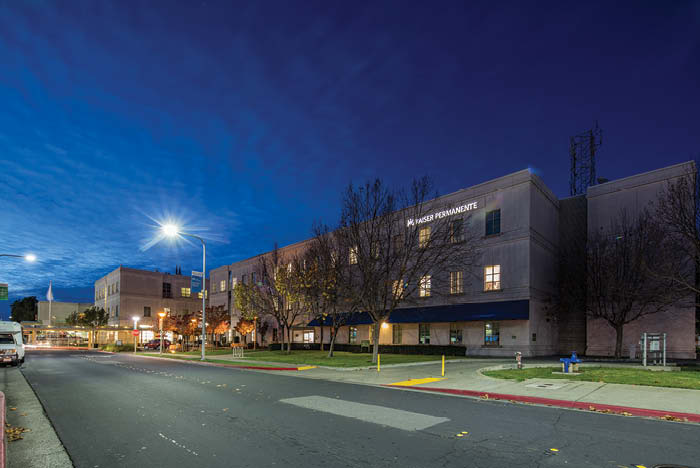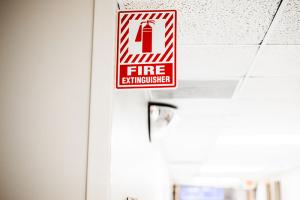Kaiser advances microgrid solutions

The Kaiser Permanente Richmond Medical Center renewable microgrid consists of a 1-megawatt battery system and an on-site 250-kilowatt solar installation.
Image courtesy of Kaiser Permanente
In 2020, Kaiser Permanente was credited with becoming the first health care system in the country to achieve carbon-neutral status, part of its longstanding commitment to renewable energy and sustainable practices. A renewable energy microgrid project at a hospital in Richmond, Calif., is one example of the organization’s innovative plan to reach its environmental goals.
For decades, Kaiser Permanente’s hospitals have had microgrids powered by diesel generators to provide backup power during outages and ensure patient care is not interrupted. While microgrids are not new to the health care environment, two issues recently have made microgrids even more essential: higher-acuity care at more locations and the increased threat of outages due to wildfires and extreme heat.
“At Kaiser Permanente, we have a commitment to achieve carbon neutrality and to do no harm in terms of climate change,” says Ramé Hemstreet, vice president of operations and chief energy officer at Kaiser Permanente. “Diesel generators are obviously not a preferred solution. And if we’re running diesel generators more frequently, due to the impacts of climate change, we’re only reinforcing the negative spiral.”
In 2018, the California Energy Commission funded a project at Kaiser Permanente’s Richmond Medical Center to install 1 megawatt-hour of battery storage and a 250-kilowatt solar power system. The project has demonstrated the ability of distributed storage to reduce the demand for electricity powered by fossil fuels and the additional resiliency the renewable energy microgrid provides.
Hemstreet says Kaiser Permanente wants to build on this success and set its sights even higher. The diesel generator is still the hospital’s primary backup power source, and the long-term goal is to have renewable energy microgrids serve in this role.
Charge Bliss, the firm that installed the Richmond microgrid, is partnering again with Kaiser Permanente on a more ambitious demonstration project at the Ontario Medical Center. The battery energy storage system, which is being funded through a California Energy Commission grant, will be charged by 2 megawatts of on-site solar. If this project is implemented as currently scoped, it will provide eight times the storage capacity of the Richmond microgrid.
“Our primary commitment is always continuity of care for our members and finding economical ways to ensure resilience and sustainability in our facilities,” Hemstreet says. “Hopefully, within the next 10 years, we can demonstrate the capabilities of renewable energy microgrids, moving us closer to the day that hospitals will no longer require the expense and negative health consequences of diesel generators.”





